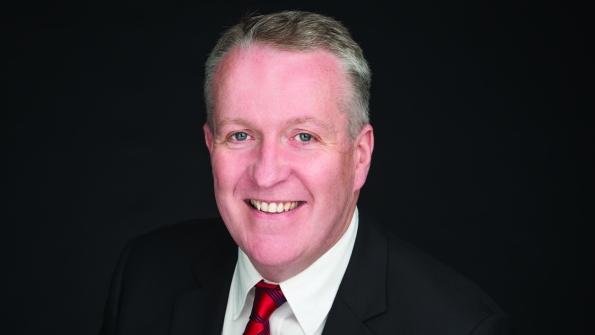Interview: Peter Bellew, CEO & Group MD Malaysia Airlines Berhad

<p><em>Peter Bellew became CEO and group managing director of Malaysia Airlines Berhad on July 1, succeeding Christoph Mueller. Bellew had been the airline’s COO since August 2015, and previously was director of flight operations at Irish low-cost carrier (LCC) Ryanair. In one of Bellew’s first acts as CEO, Malaysia Airlines announced an order for 25 Boeing 737 MAX 8 aircraft plus 25 purchase rights. </em></p>
<p><strong>The 737 MAX deal was the first major aircraft order by Malaysia Airlines since the restructuring of the airline that took effect in September 2015. What does the order mean for the company?</strong></p>
<p>This deal is a game changer for Malaysia Airlines. The 737 MAX delivers much lower costs and greater efficiency. First deliveries will start in 2019. Internally, this is very important for our employees. Malaysia Airlines’ future is now safe and secure. The new aircraft make that a reality for our employees. The restructuring of the company has happened remarkably fast. We are moving forward and are nearing the completion of the transformation.</p>
<p>Regarding the 737 MAX, there are two important points: It is the right type of aircraft for fleet replacement, offering more seats and more range than the Boeing 737-800. But the order will also give us flexibility with the existing fleet. As we determine the best speed to grow our business, we can either finish our 737-800 lease contracts or we can choose to extend them.</p>
<p><strong>Which routes will the 737 MAX operate?</strong></p>
<p>Growth over the next five years will be mainly within Asia: North Asia, China, South Korea, Taiwan and Japan—our business is tremendous on those routes. This growth strategy remains on track with the Boeing order. But the MAX also opens up new destinations like Pakistan or India, plus additional China routes. The 737 MAX gives us at least an additional hour of flying time range with no payload sacrifice and more seats compared to the 737-800. This new aircraft will set the stage for our continued recovery and success into the next decade. Our ambition for long-haul growth to Australia or Europe is very limited, which means competition from the Gulf carriers will not be a threat to us anymore. </p>
<p>But the story of the Gulf carriers and Malaysia Airlines is not just about competition—now you cooperate with Emirates Airline.</p>
<p>Malaysia Airlines’ codeshare with Emirates is an integral part of the airline’s future route strategy, helping to enhance connectivity with key priority markets. The strategic partnership offers customers a seamless international network, with both carriers currently placing their codes on the Kuala Lumpur-Dubai route, as well as on other routes under the agreement including Paris, Rome, Madrid and Frankfurt. The codeshare is being implemented gradually throughout 2016 subject to regulatory approval. It will ultimately connect Malaysia to more than 90 destinations on the Emirates’ network and allow Emirates’ customers to gain access to Malaysia Airlines’ extensive Asia-Pacific network. The codeshare now covers 24 destinations and includes frequent flyer programs. Malaysia Airlines frequent flyer program members are able to earn and redeem miles whilst travelling with Emirates.</p>
<p><strong>How will your experience with Ryanair inform your leadership of Malaysia Airlines?</strong></p>
<p>Dealing with managing costs … I think the reduction of costs is the most helpful thing we can do for our long-term strategy. The other key lesson is that speed is essential. You have to do things quickly. Yield and revenue should grow fast. If you are making a mistake, change it quickly. Our load factors should increase from the 70% range to the 80% level in the next 12 to 18 months. Revenue should rise at least 7 percentage points over the next few months. We have not been aggressive enough on the commercial side. The focus now is on selling seats.</p>
<p><strong>What about LCC competition in Asia?</strong></p>
<p>Scoot, AirAsia and so on—we do compete with them, of course. But Malaysia Airlines has a lot of loyalty program benefits besides attractive fares. Some LCCs offer low base fares, but the extra charges they have implemented are relatively high. With the 737 MAX, cost savings will be passed on to our customers through lower fares.<br />
Would you like to comment on MH17 and MH370?</p>
<p>Regarding the crashes, they happened with the old company [pre-restructuring]. MH17 and MH370 aren’t affecting our current business, but they will never go away. It is part of the history of the company. But the morale of our employees has changed. Our image has improved. We have high punctuality with our flights. So the airline is boosted by good news. All of this is visible to our employees. Malaysia Airlines today is a new company, but with a heritage of 50 years.</p>
<p><strong>What about the future of your six Airbus A380s?</strong></p>
<p>The A380s will be phased out in 2018 … The A380 is a complex aircraft to operate. We’ve found out that the best economic performance you can get out of it is on seven or eight hour- long flight sectors, not on the 12 to 14 hours we do to London. The A380s will be replaced by six A350-900s, which will operate on the London route, with one A350 maybe flying to New Zealand or North Asia. The A350s are expected to be delivered from October 2017 through 2018. And if I could pick up some Airbus A330s with Pratt & Whitney engines on the market, I would do it immediately. These aircraft offer low costs. We could add three or four A330s to our current fleet of 15 easily. </p>